Written in 2013 for a 2019 Taschen publication. — J.R.
Mr. Hulot’s Holiday
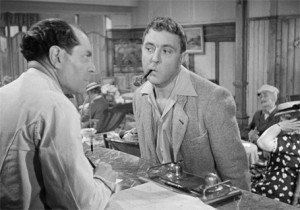
1. Tati as traditionalist, Tati as experimenter
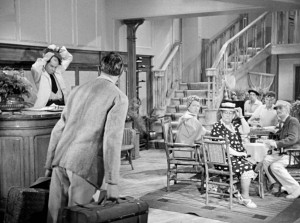
There’s a clear and consistent see-sawing pattern that can be traced over the course of Tati’s half-dozen features: a relatively conventional comedy with a relatively well-defined storyline is followed by something more radical, original, and experimental, and less bound or defined by traditional storytelling.
This isn’t only the way that PlayTime follows Mon Oncle and that Parade follows Trafic. The way that Les Vacances de Monsieur Hulot follows Jour de fête is no less striking and significant. Even after we acknowledge that, as an original artist with an artisan’s sensibility, Tati invariably experimented in all his creative work — and that Jour de fête would have seemed more experimental in 1949 if he had been able to process and release it in color, as he had intended — one can still find a striking difference between his more narrative-bound and his less narrative-bound works.
At the same time, however, there’s a certain thematic continuity that’s followed from one feature to the next even when the style and form undergo important changes. On the most basic level, Tati’s first two films deal with vacation time and the second two deal with architecture. Read more
From the Chicago Reader (May 1, 1988). — J.R.

D.W. Griffith’s last film (1931) was unquestionably dated when it was released at the height of the Depression, both as an antidrinking polemic — probably fueled in part by Griffith’s own struggles with alcoholism — and as a Victorian melodrama. Yet today it emerges as one of his most powerful and intensely felt works — not merely a heartbreaking story and a portrait of the Depression at its grimmest, but a poignant summary of everything that Griffith could do with a camera, even in low-budget, unspectacular circumstances. With Hal Skelly and Zita Johann. 87 min. (JR)
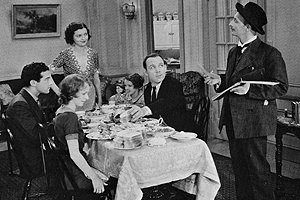 Read more
Read more
From the Chicago Reader (August 27, 2004). — J.R.
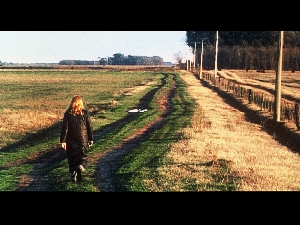
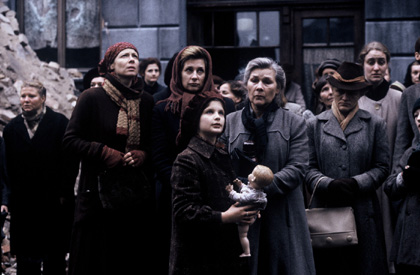
The Blonds
*** (A must-see)
Directed and written by Albertina Carri
With Analia Couceyro.
Rosenstrasse
* (Has redeeming facet)
Directed by Margarethe von Trotta
Written by Pamela Katz and von Trotta
With Katja Riemann, Maria Schrader, Martin Feifel, Jurgen Vogel, Jutta Lampe, Doris Schade, and Fedja van Huet.
It was a severe disappointment, Beyle [Stendhal] writes, when some years ago, looking through old papers, he came across an engraving entitled Prospetto d’Ivrea and was obliged to concede that his recollected picture of the town in the evening sun was nothing but a copy of that very engraving. This being so, Beyle’s advice is not to purchase engravings of fine views and prospects seen on one’s travels, since before very long they will displace our memories completely, indeed one might say they destroy them. — W.G. Sebald, Vertigo
I don’t know if some memories are real or if they’re my sisters’. –Albertina Carri in The Blonds
When I was in junior high school in the 50s I associated Stanley Kramer’s name — first as a producer, then as a producer-director — with offbeat, somewhat worthy highbrow ventures such as Cyrano de Bergerac, Death of a Salesman, High Noon, The 5,000 Fingers of Dr. Read more






